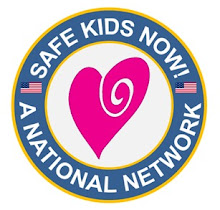Do you remember when neighbors knew every child on the block and they called parents if they misbehaved? At that time, neighbors knew how important it was to correct children before destructive behavior got out of control.
Over the years, Americans lost a critical balance between police and citizen responsibility for keeping neighborhoods safe. As citizens backed off, police increased visibility, involvement and technology to control behavior with limited success. Here are 12 ways police increased crime.
1. Police presented unrealistic expectations. National average approx 2.5 officers per 1000 residents. Police cannot keep your neighborhood safe.
2. Police became crime prevention “experts.” Citizens became passive “watchers.” Police and citizens lost a healthy balance of cooperation.
3. Police created dependency by assuming too much responsibility for minor problems including barking dogs, loud music, young vandals and bullies.
4. Police, in some areas, instill fear with local crime statistics. Citizens bought security systems or arm themselves fearing their neighbors.
5. Police increased anger. They received grants and staff support to “fix” neighborhoods. Neighbors backed off. When the money ran out, problems increased.
6. Police assume too much responsibility. Citizens blamed them for not doing their job. Result in some areas…hostility toward police, less cooperation and reporting.
7. Police increased neighborhood isolation. They held meetings and provided home security info. Neighbors arrived as strangers and left as strangers.
8. Police received community-policing grants. Citizens depend on police who didn’t live in the area. Policy shifts, officer leaves and crime, goes up.
9. Police, not parents or adults in the neighborhoods, became the symbol of authority and correction for youth.
10. Police assumed responsibility without understanding the benefits of neighbors solving problems and becoming role models for youth.
11. Police don’t say... it’s your responsibility to keep your neighborhood safe. Police react to crime, citizens prevent crime.
12. Police have many limitations. Residents must take back neighborhood safety if they want to keep children safe.
Americans can restore a healthy balance between police and citizen’s responsibility in the neighborhood. However, neighbors must be involved to help control criminal behavior and correct youth BEFORE they get involved in gangs, drug abuse and violence. Safe neighborhoods require mutual respect and cooperation.
For more information on what you can do to make your community safe, contact: www.safekidsnow.com
The world is a dangerous place to live, not because of the people who are evil, but because of the people who don't do anything about it. -Albert Einstein
Sunday, July 17, 2011
Thursday, July 7, 2011
Neighborhood Test
1. Do you know all your neighbors? (10 families around you)
2. Do you talk to the youth in your neighborhood?
3. When you see youngsters misbehaving, do you speak up, and correct them or notify parents?
4. Do you accept complaints about your children?
5. Do you watch your neighbors’ home when they are away?
6. Do your neighbors watch your home when you are away?
7. If you hear or see something suspicious, do you contact neighbors or call the police?
8. Do you and your neighbors work together to solve neighborhood issues? (bullies, vandals, lighting, noise, etc)
9. Do you have a designated neighborhood leader?
10. Do you have your neighbors contact (phone, email) information.
11. Is your family actively involved in your community? (civic, youth, charity, religious groups)?
12. Do you know your elected officials and local police?
13. Do you know what to do in an emergency?
14. Do you know as much about your community as you know about national problems?
Rate yourself:
Are you part of the problem? Your neighborhood needs you and your ideas.
Set a goal for a YES on every question to help keep families and children safe.
For more information on what you can do. Check out:
www.safekidsnow.com or contact us at: safeneighborhoods@gmail.com
2. Do you talk to the youth in your neighborhood?
3. When you see youngsters misbehaving, do you speak up, and correct them or notify parents?
4. Do you accept complaints about your children?
5. Do you watch your neighbors’ home when they are away?
6. Do your neighbors watch your home when you are away?
7. If you hear or see something suspicious, do you contact neighbors or call the police?
8. Do you and your neighbors work together to solve neighborhood issues? (bullies, vandals, lighting, noise, etc)
9. Do you have a designated neighborhood leader?
10. Do you have your neighbors contact (phone, email) information.
11. Is your family actively involved in your community? (civic, youth, charity, religious groups)?
12. Do you know your elected officials and local police?
13. Do you know what to do in an emergency?
14. Do you know as much about your community as you know about national problems?
Rate yourself:
Are you part of the problem? Your neighborhood needs you and your ideas.
Set a goal for a YES on every question to help keep families and children safe.
For more information on what you can do. Check out:
www.safekidsnow.com or contact us at: safeneighborhoods@gmail.com
Subscribe to:
Posts (Atom)




